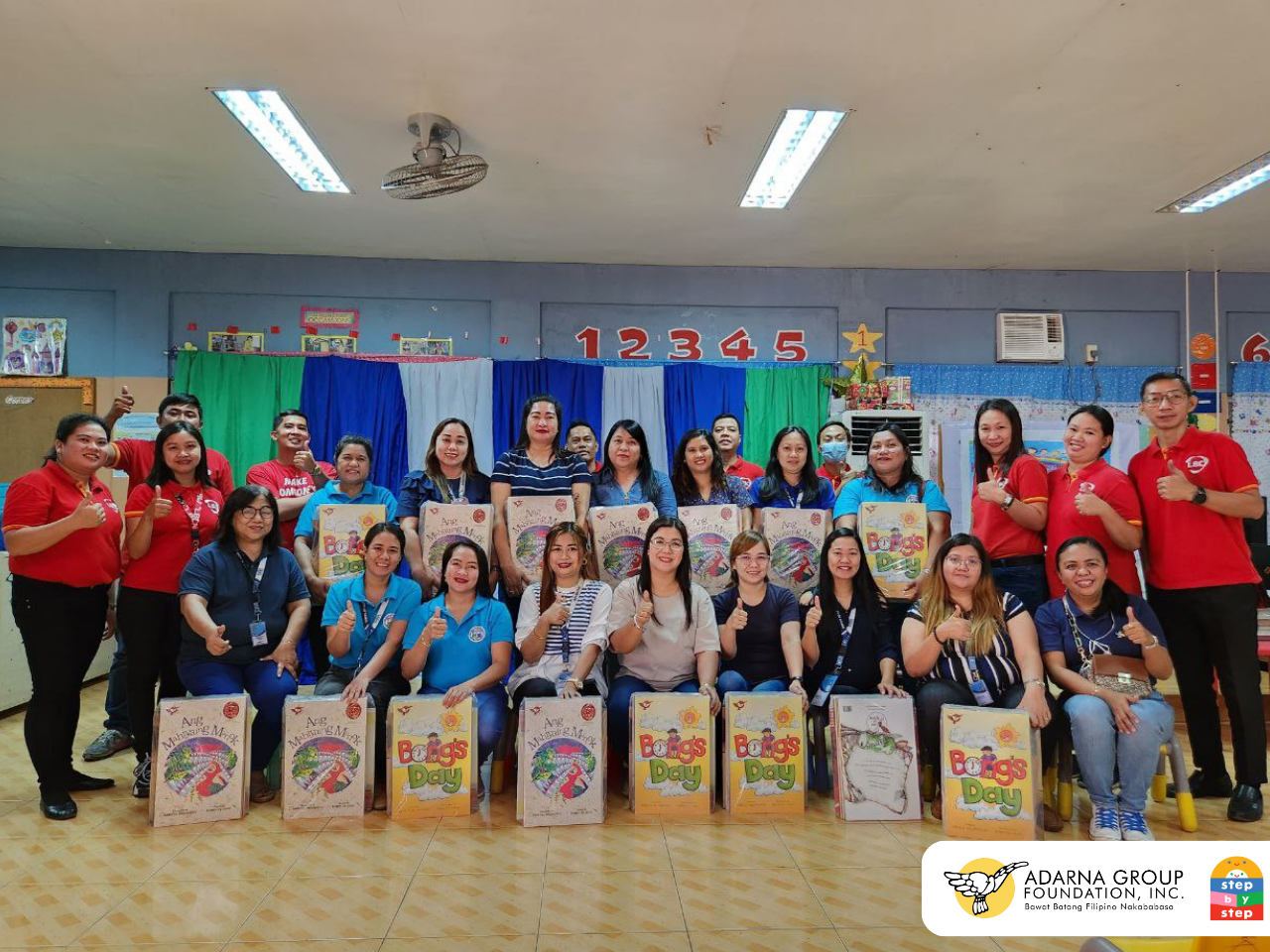Leaders in Action: How Local Governments Pave the Way for CSOs
Staff of the Adarna Group Foundation, Inc. and the LBC Hari ng Padala Foundation, Inc. smile beside Mayor Gian Pierre “Jappy” O. De Dios after a short community visit to monitor the Step by Step implementation in Anao, Tarlac. Hon. Jappy has been selected as one of the awardees for National Outstanding Mayor of the Year during the Excellent Filipino Awards 2024. The said award aims to recognize the valuable talents, skills, and contributions of exceptional Filipinos to their society.
When people think of program implementation, they often think of community visits—-the buzzing excitement of people gathering together and joining activities. Perhaps others may think of the distribution of school supplies and photo opportunities with children. However, there’s much more to implementing programs than what meets the eye. Program implementation begins months before the actual program. It starts with the signing of a Memorandum of Agreement with the community’s local government officials. Only with the approval of these dedicated leaders in action can civil society organizations like the Adarna Group Foundation, Inc. (AGFI) brings its programs to new people and places.
CATALYSTS OF COMMUNITY DEVELOPMENT
While one does not need a title to serve the people, local government officials are in a position to represent their constituents. Unlike ordinary citizens, they have an allocated amount of resources, time, and authority to execute their functions in service of the people. Based on a local government official’s designation, these functions may include addressing concerns, keeping the public informed, implementing projects, and drafting local policies—-making them catalysts of development. As active members of a community, they have an in-depth understanding of the community’s history and needs, making them informants to potential partner organizations.
Below are some local government officials that AGFI frequently works with during its program implementation, and the unique roles each official plays in program implementation:
Municipal Mayor
Mainstreams early literacy initiatives by signing municipal ordinances
Signs a partnership agreement with the AGFI and implementing partners
Endorses AGFI and other implementing partners to other local government officials
Municipal Health Officer
Leads the Rural Health Unit (RHU) as its overall manager, trainer, medical and legal officer
Responsible for all the RHU’s programs and capacity-building activities
Provides in-depth information about health-related challenges faced by women and children
Endorses AGFI and other implementing partners to RHU staff for increased cooperation
Municipal Social Welfare and Development Officer
Oversees early childhood care and development initiatives and aligns them with various national ECCD laws
Plans and implements welfare, protection, and rehabilitation programs and services to improve the living conditions of the community’s vulnerable and marginalized constituents
Coordinates the support needed from various agencies, government offices, and NGOs
Assists the Mayor and local lawmakers in developing strategies and policies
Community Coordinator
May be any appointed individual or group responsible for ensuring smooth collaboration between community members and partner organizations, acting as overall program co-implementers
Dutifully handles tasks such as preparing the venue, gathering program attendees, informing implementing partners of significant changes, and securing approval from local authorities
Introduces AGFI to other relevant officials and individuals
Community Implementers
Proactively take on various hands-on roles for the successful implementation of Step by Step programs in their communities
Lead learning sessions and the training of participants
Moderate group chats and facilitate discussions
Provide continuous feedback used for program adjustments, monitoring, and evaluation
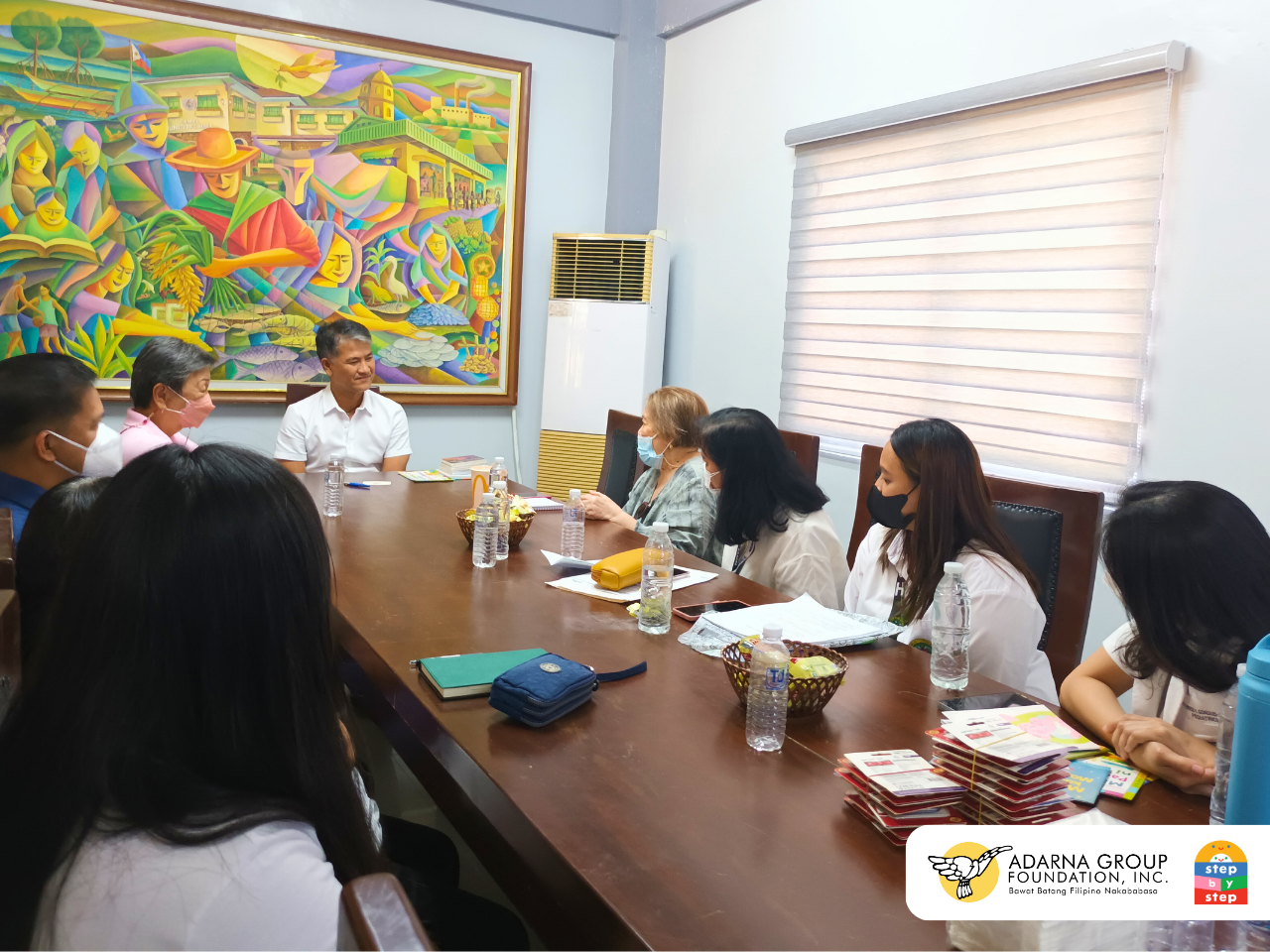
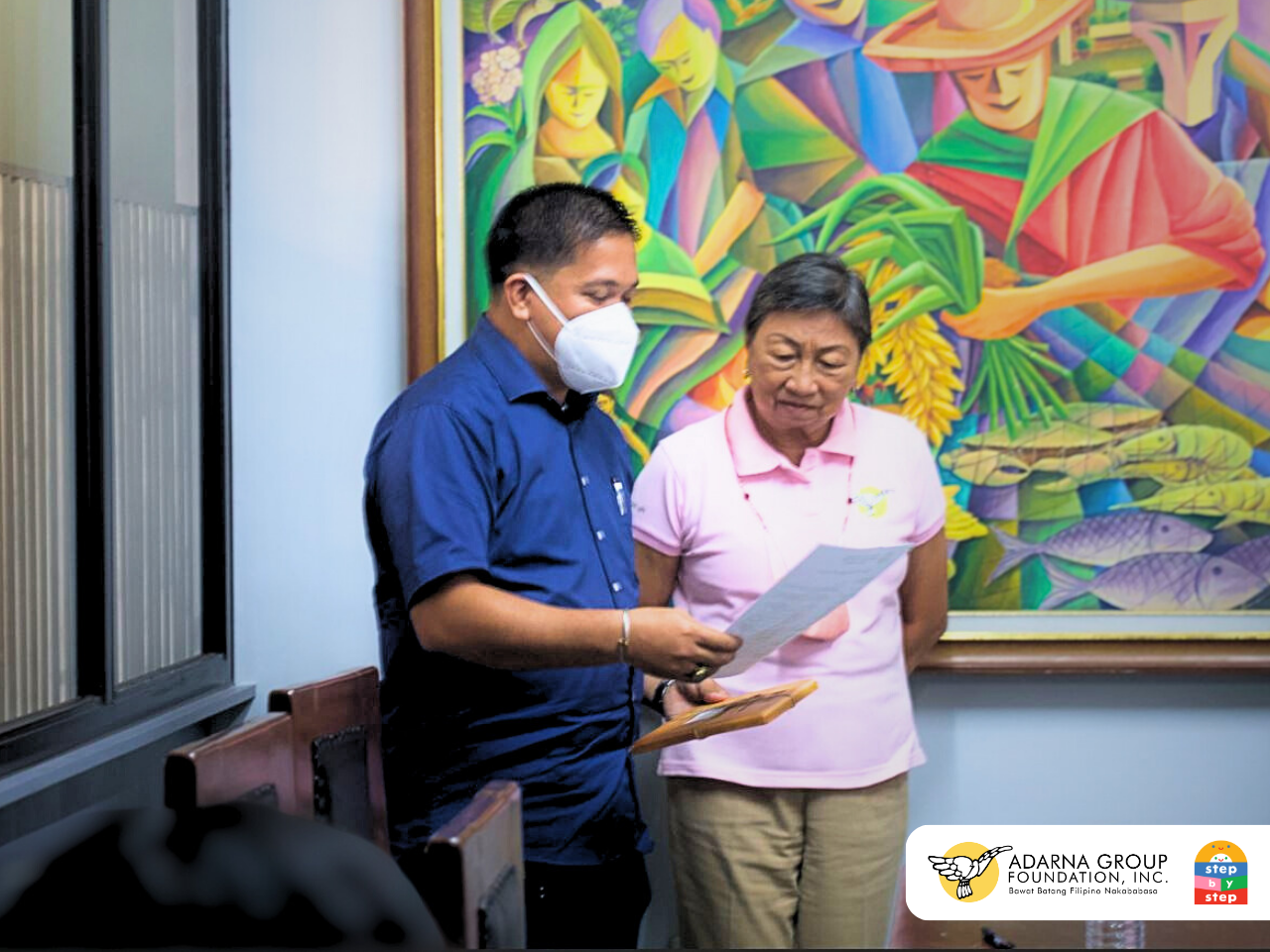
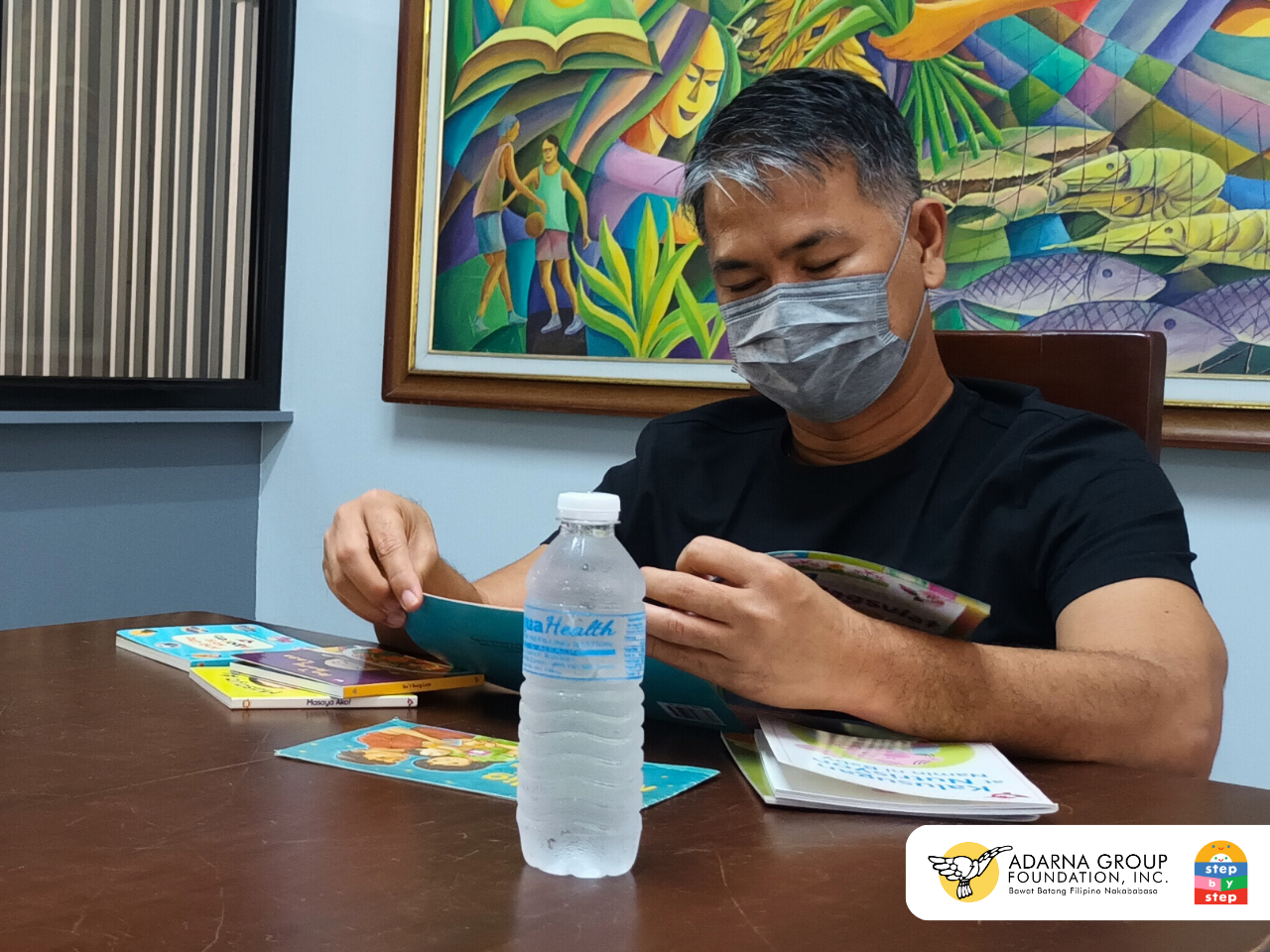
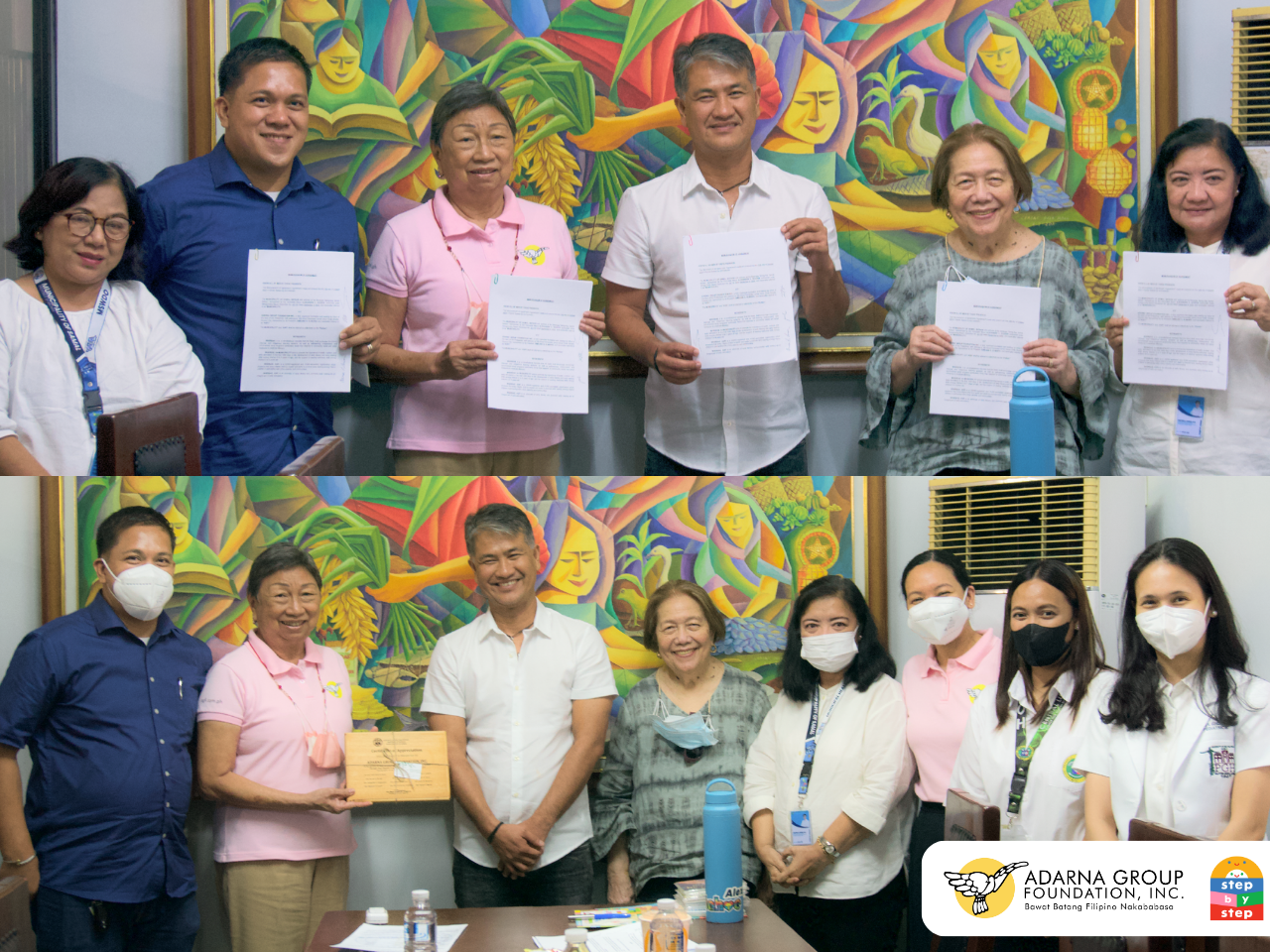
In the world of development work, courtesy visits are a must. For effective collaboration, organizations new to the community must build rapport with local government officials. This is usually done over a series of interactions and lays the foundation for a continuing partnership. In these photos, AGFI staff meet with Mayor Alex Acuzar of Samal, Bataan and his Council to discuss the implementation of several Step by Step programs.
PROMOTING COMMUNITY PARTICIPATION
Promoting community participation is vital to the sustainability of any program and is an essential part of development work. For community leaders, a form of hands-on participation is finding ways to implement the proposed Step by Step programs into the local government unit’s existing frameworks. This prevents the duplication of efforts and results in a more coordinated approach. For the community, participation is not only limited to being involved in predesignated activities. It includes adjusting the language used, activities involved, mode of communication, and the implementation timeline to create a tailor-fit program suited to the community’s needs. By being involved in the process, participants experience a greater sense of personal investment in the initiative’s outcome.
AGFI’s Step by Step Approach is designed to be flexible for local government units. Its five interconnected programs were created to be easily integrated into the existing practices, resources, and systems of local government units. Additionally, every component entails the participation and feedback of the concerned officials, making them a true partner in achieving the vision of every Filipino child a reader.
To date, the Adarna Group Foundation, Inc. has brought its Step by Step Approach to a growing number of local government units.
Local Government Units Served
San Clemente, Tarlac
Anao, Tarlac
Ramos, Tarlac
Samal, Bataan
Odiongan, Romblon
Tolosa, Leyte
Where will the Step by Step Approach go next? For partnership inquiries or more information on how to bring AGFI’s programs to your community, email us at adarnagroupfoundation@agfi.com.ph.






